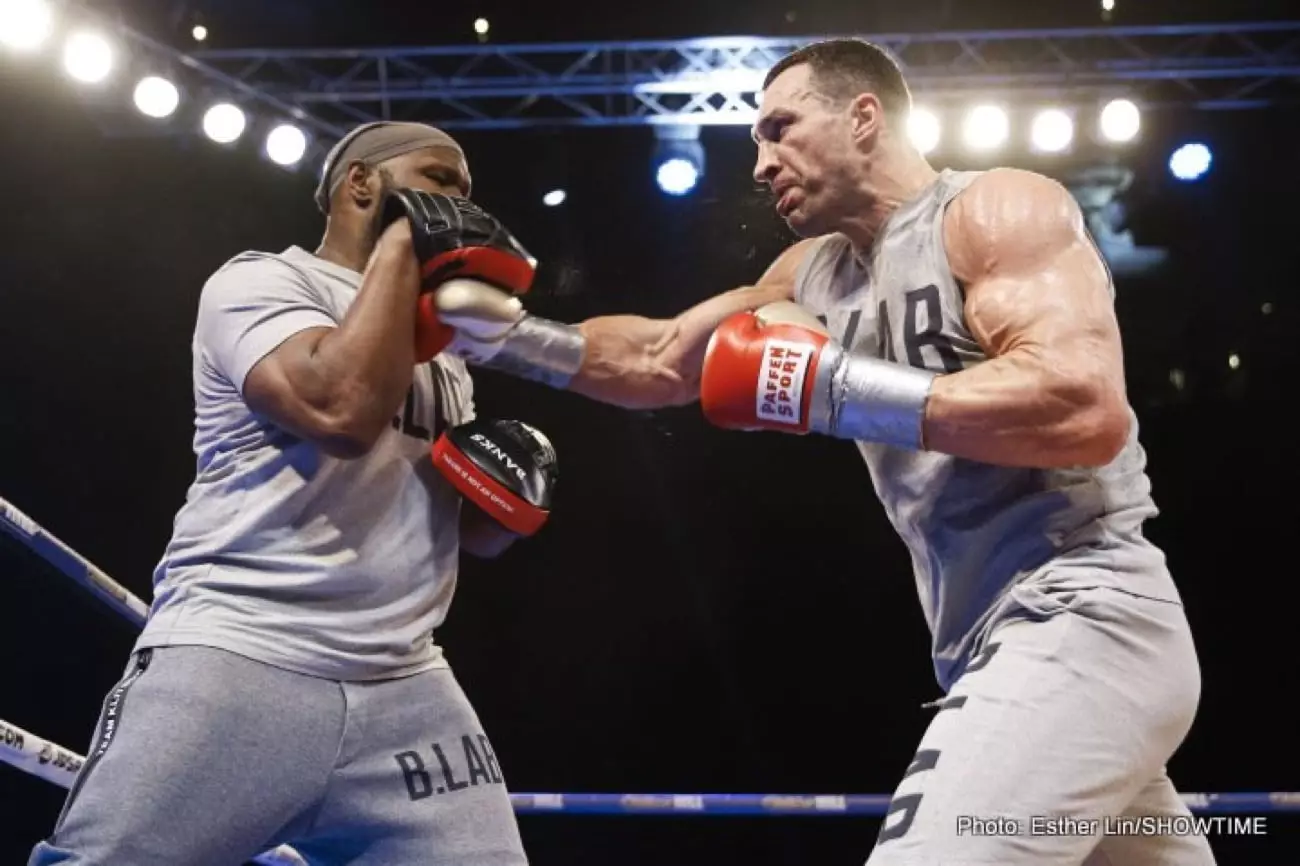In a striking announcement that has sent ripples through the boxing community, His Excellency Turki Alalshikh has expressed his ambition to orchestrate a rematch between former unified heavyweight champion Wladimir Klitschko and current heavyweight sensation Tyson Fury, aiming for a showdown in 2025. This proposal stands contingent upon Fury’s performance in the forthcoming rematch against Oleksandr Usyk, scheduled for December 21st. Should Fury manage to triumph over Usyk, a swing of fate could potentially reignite a classic rivalry that has intrigued boxing aficionados since their initial encounter in 2015.
A telling aspect of this proposed rematch hinges on Klitschko’s age and physical prowess. As he approaches 49 years old, one might assume his best years are behind him. Surprisingly, Klitschko appears to be in robust health and superior physical form when compared to Fury, who sometimes struggles with his fitness levels. Despite the undeniable marks of age, such as Klitschko’s silvering hair, his muscular build suggests that he may still have much to offer in the ring. The stark differences in physique draw attention to the modern boxing narrative where aesthetics and performance correlate profoundly.
Interestingly, this dynamic leads back to Klitschko’s prior bout against Fury in Dusseldorf, where he suffered a stunning loss by unanimous decision. That bout marked a significant turning point in boxing history and catapulted Fury into a stratospheric level of fame, although critics argue that Fury has yet to face opponents of similar caliber since that victory. While his career trajectory has soared, genuine doubts remain about the depth of his boxing prowess away from Klitschko.
In the realm of boxing, expectations are a double-edged sword. A rematch between Fury and Klitschko hinges almost entirely on the outcomes of Fury’s upcoming clash with Usyk. Should Fury falter, it could render Alalshikh’s ambitions for a Klitschko shot at being the oldest heavyweight champion obsolete. The heavyweight division’s current landscape is an intriguing web of potential matchups; up-and-comers like Daniel Dubois and seasoned fighters like Anthony Joshua await the outcomes of these bouts, each hoping to seize a chance at glory.
Alalshikh’s enthusiasm for this rematch stems not just from nostalgia but from the undeniable thrill of having two iconic figures resurrect a classic bout. While some critique the likelihood of Klitschko retaining the kind of competitive edge needed to take on a younger opponent, the rematch’s allure transcends mere statistics. It brilliantly encapsulates the sport’s history and would undoubtedly attract a significant audience, igniting discussions about legacy, age, and the enduring spirit of competition.
As boxing evolves, narratives surrounding fighters grow ever more intricate. Alalshikh aptly reflects upon how both Tyson Fury and Wladimir Klitschko stand as titans of different eras—both fighters encapsulating unique stories within the sport. Klitschko’s career embodies the archetype of the meticulous athlete, honed through years of discipline and strategic training. In contrast, Fury represents the unpredictable wildcard, known for his flamboyant personality and controversial tactics in and out of the ring.
However, diminishing returns on Klitschko’s abilities cannot be ignored. A critical observation of their previous encounter reveals that while Fury may have claimed victory, it was Klitschko’s inability to capitalize on his offensive prowess that played a pivotal role. Klitschko’s hesitance during their initial clash highlights a notion that he may have been grappling with age-related constraints, a poignant reminder of the natural deterioration that accompanies prolonged athletic competition.
As fervent boxing fans await the rematch between Fury and Usyk, the prospect of Klitschko stepping back into the fray adds a captivating twist. Alalshikh’s vision, however daring, emphasizes not only the desire for traditional matchups but also the importance of legacies within the sport. Whether he triumphs in his pursuit to see these boxers clash once more remains to be seen, but the mere possibility serves as a reminder of boxing’s multifaceted nature and its undying capacity to thrill.
As the storylines unfold, the boxing community has ample reason to engage in speculation about these heavyweight titans. With the years advancing, one can only hope this thought-provoking discourse on legacy pushes both fighters back into the ring for a final showcase of their talents—a battle that transcends age and encapsulates the essence of boxing excellence.

